It turns out that endangered birds are losing 'the songs that have been passed down from generation to generation'

by
Just as human children learn from adults, animals learn a variety of survival and reproductive behaviors from experienced individuals of the same species. The bird's 'song' is also one of the important behaviors that is passed down from generation to generation, but due to the decrease in the number of individuals due to the loss of biodiversity, the endangered honeyeater Kigaomitsusui that inhabits Australia has inherited the 'song'. Researchers have revealed that '' is being lost.
Loss of vocal culture and fitness costs in a critically endangered songbird | Proceedings of the Royal Society B: Biological Sciences
https://royalsocietypublishing.org/doi/10.1098/rspb.2021.0225
Only the lonely: an endangered bird is forgetting its song as the species dies out
https://theconversation.com/only-the-lonely-an-endangered-bird-is-forgetting-its-song-as-the-species-dies-out-156950
Regent honeyeater is an endemic Australian species that eats eucalyptus and mistletoe nectar and fruits, and was once a widely found species in the forests of eastern Australia. However, in recent years, it is disappearing rapidly due to the decrease in habitat, and it is said that it lives only in parts of New South Wales and in captivity.
Such regent honeyeater was known for its characteristic and soft-sounding songs, but it seems that the songs that have been passed down from generation to generation are being lost as the number of species left in the wild decreases. The content of the research team's research on the song of Regent honeyeater can be understood by watching the following movie.
An endangered bird is forgetting its song as the species dies out | Video Abstract --YouTube
Like human language, birds learn songs by listening to the voices of experienced companions, and many species take about a year to learn.
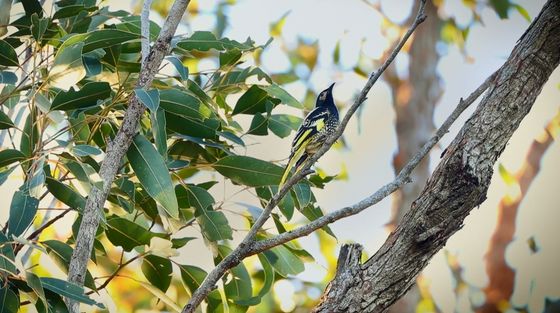
Learning the right songs plays an important role in acquiring nesting sites and partners. However, in recent years, biodiversity has been threatened due to development and climate change, and there is concern that endangered species may lose their important culture.
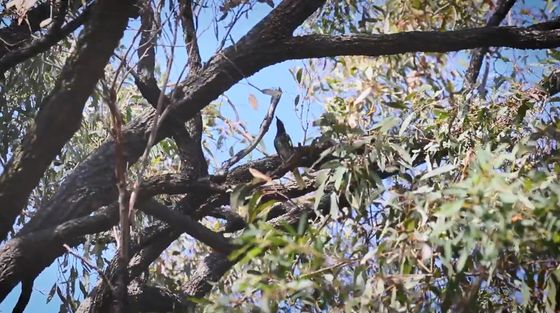
To find evidence that population declines lead to wildlife cultural loss,

The now endangered honeyeater is said to have been a common bird in the suburbs of Sydney and Melbourne around the 1930s.
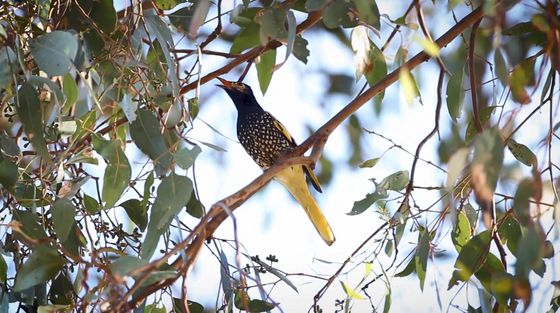
However, humans have cleared habitat forests, resulting in a dramatic decline in populations over the last 50 years.
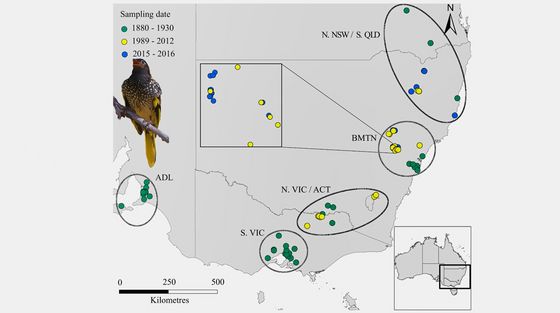
At the time of writing the article, it inhabits only a part of New South Wales, and it seems that the number of wild individuals is less than 300 at most.
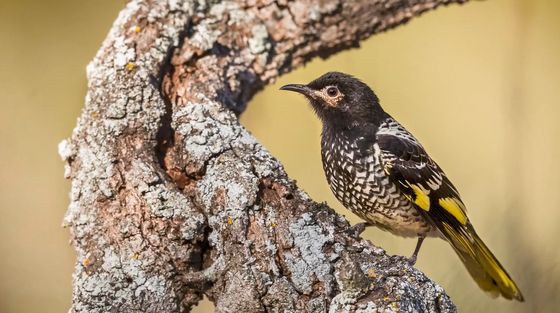
The research team tracked wild honeyeaters from 2015 to 2019 and recorded a total of 47 barks ...
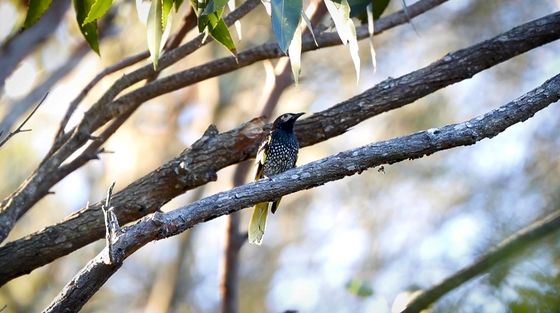
A total of 146 barks were analyzed, including the barks of captive individuals.
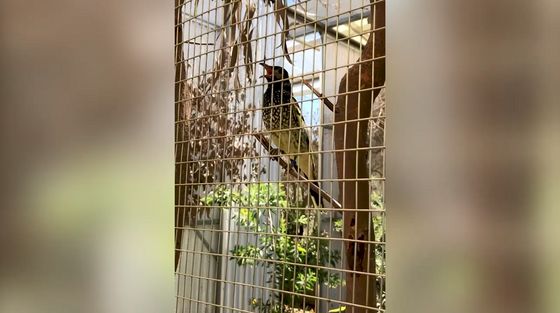
As a result, it was found that even the same wild Regent honeyeater has different songs depending on the range of inhabitation.
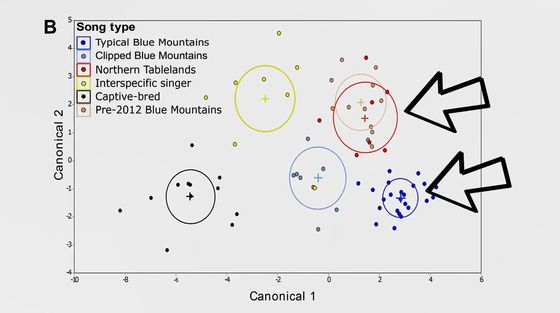
With the song of Regent honeyeater that lives in the area called
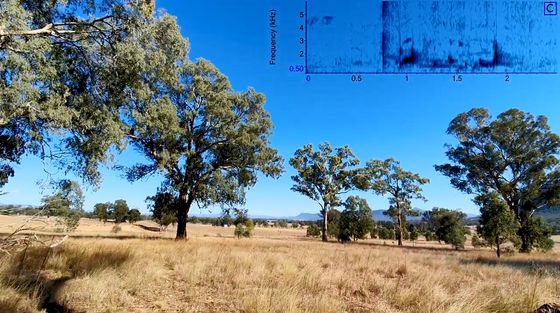
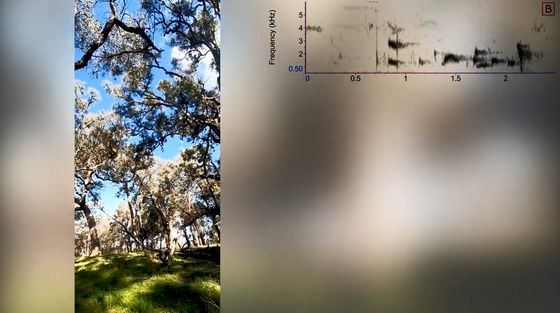
In addition, 18 birds out of the Kigaomitsusui the wild, living in Australia
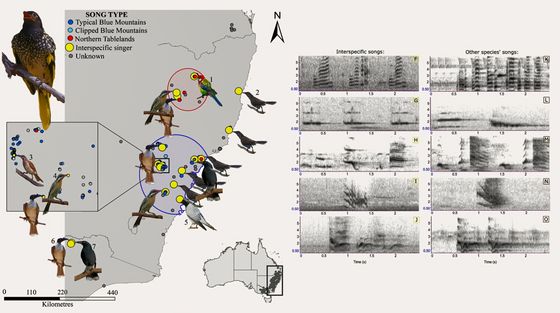
It seems that these regent honeyeaters were likely to occur in places with low population densities, suggesting that the culture of singing would be lost if there were no model individuals nearby.
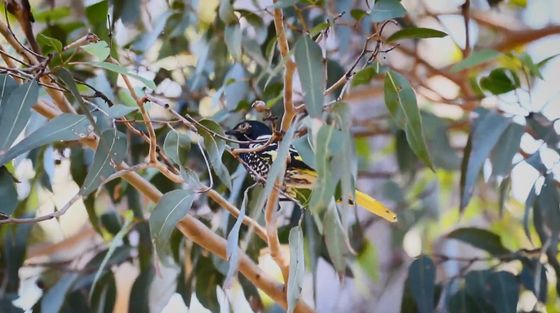
It was also found that the complexity of the song decreased over time, even for individuals who inherited the correct honeyeater song.
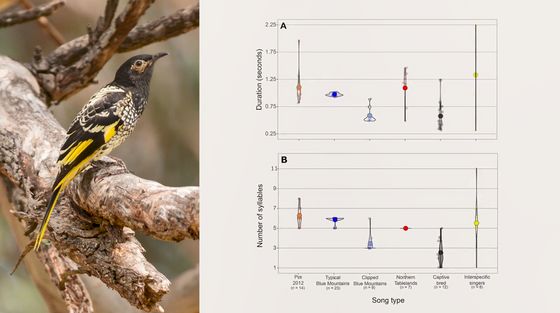
When the research team investigated the regent honeyeater that collected the barks, individuals with unusual songs were less likely to be packed than individuals with the correct song. Therefore, the loss of the correct song can be a factor in accelerating the endangered species.
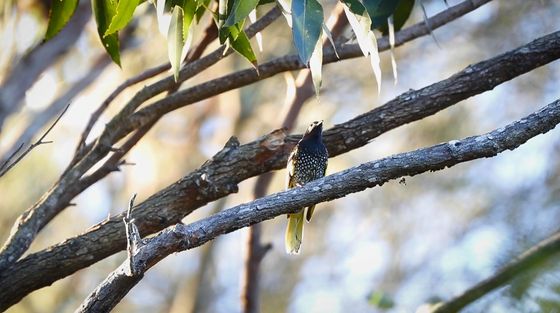
Furthermore, since it was found that captive individuals have different songs from wild individuals, it is also an issue whether males bred in captivity can breed well with wild females.
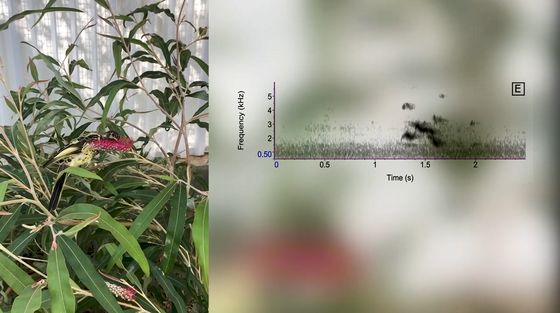
Based on this result, the research team is trying to convey the correct culture by letting the captive individuals hear the 'correct song' recorded from the Regent honeyeater that lives in the Blue Mountains.
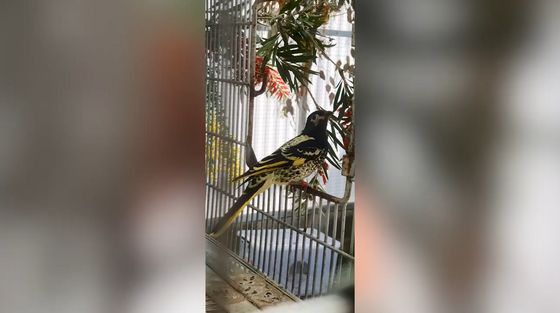
Related Posts:







